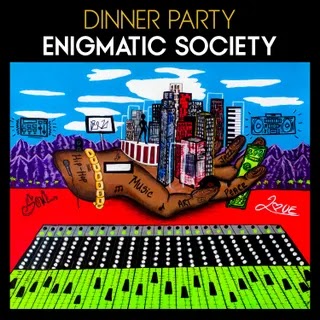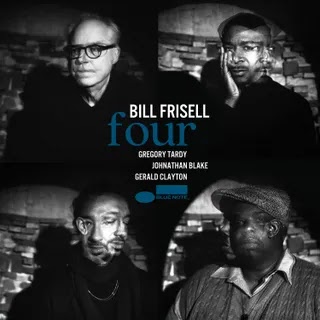The tenor saxophonist’s beguiling and divisive 1969 album attempted to cross-wire free jazz with rock, funk, and soul. It remains his most misunderstood record.
No one could have predicted Albert Ayler’s turn to pop. The tenor saxophonist emerged in the mid-’60s as one of the most visceral forces of the free-jazz movement, with raw, chaotic compositions that jumbled expressions of joy and mourning until they were indistinguishable. Ayler’s respected standing in avant-garde circles made the abrupt stylistic shift of his 1969 album New Grass all the more baffling. Instead of the structureless squall he was known for, here was Ayler singing lead on AM-radio pop songs and superimposing his unhinged sax skronk over funk, soul, and rock rhythms. Freshly remastered and reissued by Third Man in its first vinyl pressing in over 40 years, the wildly mismatched colors of New Grass still don’t resemble anything else.
Ayler had signed on with highly visible jazz imprint Impulse! in 1966 at the behest of their star player John Coltrane. New Grass would be his third release with the label and the first without his brother and trumpet player Donald Ayler. Donald’s limited but eruptive playing had been integral in his brother’s music finding its highest form, but the lifestyle of the struggling jazz musician pushed him to his brink. He stopped playing in Ayler’s band shortly before suffering a mental collapse. Around the same time, Ayler had begun a relationship with Mary Parks, a poet and singer who went by the alias Mary Maria. Parks sang on New Grass, and her flower-power poetry provided the lyrics. Some familiar sidemen were on board (Bill Folwell switching from upright bass to electric and keyboardist Call Cobbs reprising the gossamer harpsichord he’d brought to Ayler’s free-floating Love Cry the year before), but the personnel consisted mostly of session musicians. Lockstep drumming, overdubbed horn sections, and back-up singers all nudged the sound towards the kind of schmaltz the music industry was churning out in the late ‘60s. As if to ease listeners in, the album begins with a high-energy saxophone and bass improvisation that leads to a spoken message from Ayler. In a mystical ramble somewhere between a prayer and a warning, he offers the hesitant disclaimer “I hope you will like this record.”
On transcendent concert documents like Bells and In Greenwich Village, Ayler’s free jazz was messy and volatile, with a drive so supernatural it barely seemed possible the music was made by earthly beings. His new songs were messy in a way that was unnervingly human; jittery, flailing, and striking out in several bizarre directions at once. The melodic signatures were the same—simple, friendly lines that evoked New Orleans funeral marches or children’s songs—but Ayler’s vibrating tone hovered in a separate orbit from his band’s standardized grooves. More jarring than the ill-fitting arrangements were Ayler’s prominently featured vocals. Unlike the wordless incantations he’d occasionally included on earlier albums, here he was leading songs with a bellowing, untrained voice that was wavering at its most controlled. The sung introduction to “New Ghosts” (a reworking of “Ghosts,” a tune Ayler recorded multiple variations of) devolves line by line into unintelligible blabbering. Park’s lyrics were mostly vague hippie platitudes, and Ayler delivered them in a manic wail that clashed with their gentle sentiments of peace, love, and progress.
The material was recorded over the course of just two days and the performances are rushed. Raved-up workouts like “New Generation” and “Everybody’s Movin’” whizz by at hyperactive tempos, the players scrambling to keep up. Ayler often stops singing mid-verse to jump into long-winded free solos, squealing euphorically as the band chugs along on autopilot behind him. “Heart Love” is the best example of the disjointed sweetness that carries New Grass, with cooing backing vocals and playful sing-song melodies gelling tenderly before Ayler blasts into a sax freakout that burns on for the majority of the song. This certainly wasn’t jazz of any kind, but was too overstimulated and confused to pass for the Woodstock-generation rock’n’roll it was trying to emulate. What was this?
The harshest reviews decimated the record, calling out the new direction as a blatant appeal to white, mainstream audiences. But if this was an attempt at selling out, it was poorly conceived. Ayler’s new sound ignored the smooth, danceable soul The Isley Brothers and Marvin Gaye were topping the charts with at the time and looked more towards the jumpy gospel and R&B of the early ‘50s and the electric blues styles he’d played while touring with Little Walter in his younger days.Compared to the riotous funk of Sly and the Family Stone or the sleek, boundary-testing fusion Miles Davis was beginning to explore around the same time, New Grass seemed uptight and a little old-fashioned. Factoring in warbly singing and discordant sax solos, it’s hard to imagine even the most out-there record exec hearing commercial potential in this strange little record.
The album’s fragile balance of excitement and anxiety speaks to the unstable place Ayler was in during the last few years of his life. Riddled with guilt about pulling his brother into a world that broke him and exhausted from years of grinding in poverty and obscurity, he grew increasingly erratic and isolated. Some friends reported calls with Ayler in which he deliriously explained visions he’d had while staring into the sun. The rest of his recorded output would consist of unfocused experiments that reflected a troubled inner world, and in late 1970 he would be found dead at age 34, in mysterious circumstances presumed by many to be suicide. New Grass signaled the beginning of a descent into darkness for Ayler, one that saw him grasping at ideals of redemption and healing all the way down.
Ayler’s 1964 debut My Name Is Albert Ayler also begins with a spoken message, one that wanders for a while before ending with the soft declaration “One day everything will be as it should be.” He would spend the rest of his life expanding on that thesis, with every phase of his music returning to themes of suffering and confusion ultimately giving way to peace. Ayler’s spiritual message didn’t change on New Grass, but grew weirder and more intimate as he struggled to deliver it in a way that could be universally understood. Similar to Arthur Russell’s hermetic dance tracks or Muddy Waters’ surreal stabs at psychedelic rock on Electric Mud, Ayler’s notion of popular music was so distanced from reality that it became its own self-contained universe.
View the original article here
















0 comments:
Post a Comment